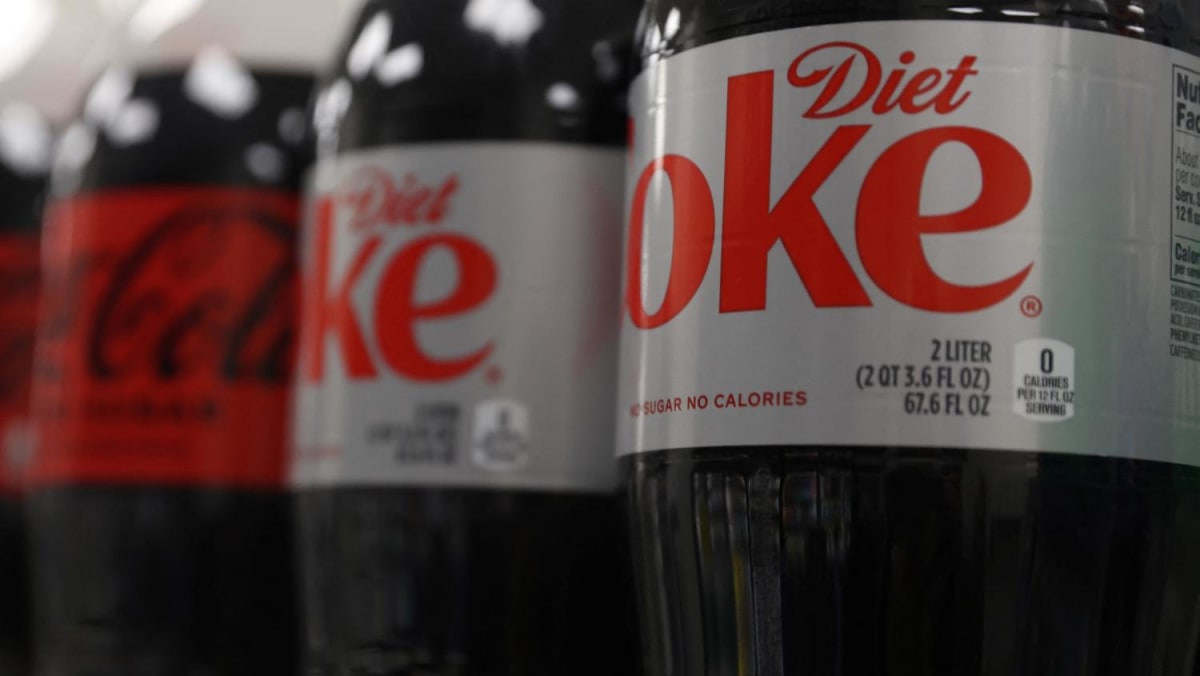
SINGAPORE — Aspartame, a popular artificial sweetener found in Coca Cola diet sodas, yoghurt and other food products, is set to be declared a possible carcinogen in July by the International Agency for Research on Cancer, the research arm of the World Health Organization (WHO), Reuters reported.
This means that it has the potential to cause cancer in human beings.
Reuters reported on Thursday (June 29) that shoppers can find aspartame in Weight Watchers yoghurts and some Snapple drinks, for example.
WHAT IS ASPARTAME?
Discovered in 1965 by American chemist James Schlatter, aspartame is about 200 times sweeter than regular table sugar.
It was approved by the United States Food and Drug Administration in 1974 for use as a tabletop sweetener and as an additive in chewing gum, breakfast cereals and dry bases for foods.
WHAT KIND OF PRODUCTS CONTAIN ASPARTAME?
The low-calorie sugar substitute can be found in soft drinks, confectionery, desserts, sugar-free cough drops and gelatine (a substance typically made from animal bones and used especially to make certain jellies or candies).
Aspartame is also used to enhance the flavouring of baked and canned foods, powdered drink mixes, candy and puddings.
WHAT ARE THE OTHER TYPES OF ARTIFICIAL SWEETENERS?
Saccharin, sucralose and neotame are among five other artificial sweeteners alongside aspartame authorised by a WHO expert committee on food additives.
HAVE COMPANIES MOVED AWAY FROM ASPARTAME?
Aspartame’s use in food products has been debated for decades and has also prompted some companies to remove the compound from their products.
US food manufacturing company PepsiCo removed aspartame from some US diet sodas.
Although the company brought it back a year later, it again removed the ingredient in 2020.
IS ASPARTAME USED IN SINGAPORE?
Reuters reported that more than 90 countries, including Australia, Denmark, France, Germany, Italy, New Zealand, Spain and the United Kingdom, have reviewed aspartame and found it to be safe for human consumption and allowed its use.
In Singapore, the HealthXchange.sg website by public health cluster SingHealth shows aspartame to be one of the commonly available sugar substitutes in Singapore.
Dieticians said that sweeteners with little or no calories such as aspartame can help with weight management, but they emphasise that it is best to try to do without sweeteners and to acquire a palate that prefers less sweet tastes.
Sweeteners have not been found to help in reducing sugar cravings as well. Like sugar, they only provide temporary satisfaction for such cravings.
Sweeteners work best if used only in recommended amounts or less.
Most of the them are many times sweeter than sugar but because of the way they are packaged (tablet or powder form), most people tend to use more, based on the false assumption that the suggested amount will not sweeten the food.
IS ASPARTAME SAFE TO CONSUME?
Information published by the Singapore Food Agency in 2016 on its website showed that aspartame is generally safe and approved for use in food worldwide.
However, three groups of people are unable to safely consume aspartame, because they are unable to effectively metabolise the amino acid phenylalanine, a component of aspartame, and thus leads to it being accumulated at harmful levels. They are:
People with the phenylketonuria, a genetic diseasePeople with advanced liver diseasePregnant women with hyperphenylalanine (having high levels of phenylalanine in blood)
Food products containing aspartame are required to be labelled with the words “Phenylketonurics: Contains Phenylalanine”. WITH AGENCIES